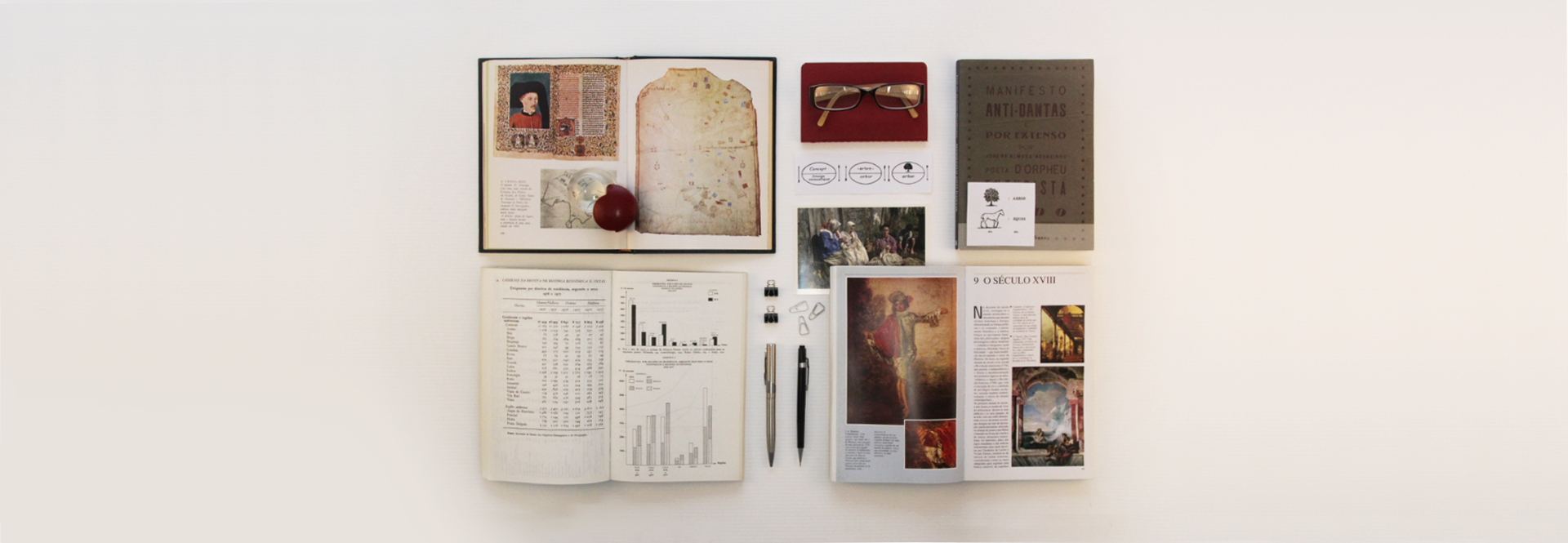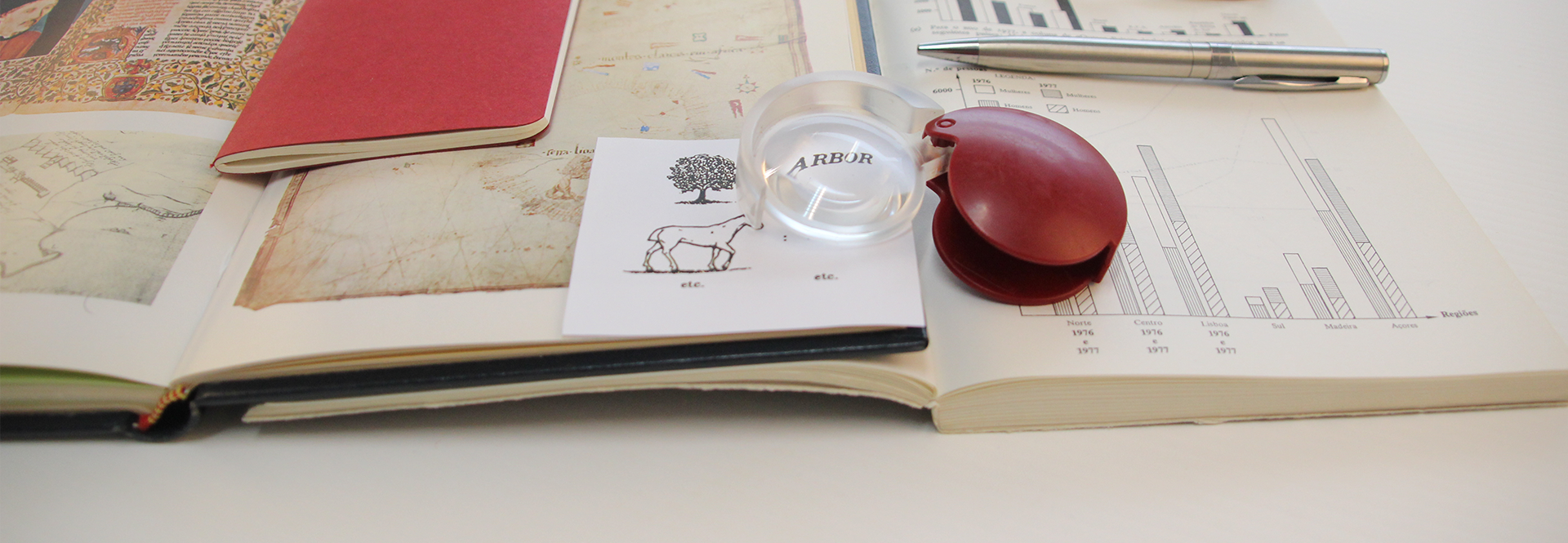
Master's Degree in Linguistics: Societies And Cultures
This degree offers an advanced training programme in linguistic studies applied to a range of different societies and cultures. The intention is to provide answers for the challenges and linguistic demands in the multilingual and multicultural contemporary context.
This master’s degree aims at promoting research methods in Linguistics; identifying the importance of the scientific area of Linguistics as a factor of knowledge of societies and cultures, in wide and multidisciplinary contexts; researching and appreciating different linguistic identities in local, regional and national societies and cultures; providing in depth knowledge in linguistics, with a focus on areas such as Sociolinguistics, Pragmatics, Discourse and Cognition, Geographic and Sociocultural Variation, Comparative Linguistics, Translation Studies, Second Language Acquisition, Phonetics and Prosody, as well as Linguistic Revision and Editing; developing interdisciplinary studies based on the framework of Linguistics as a Social Science, for a better understanding of societies and cultures, mainly through a qualitative analysis of empirical data; handling different relevant aspects of Linguistic Studies in different varieties and norms of the Portuguese Language in the Lusophone area in addition to other culture bearing languages; promoting language awareness in different communicative situations (intercultural and multidisciplinary) and contrastive analysis in the face of other interacting linguistic codes; developing efficient, clear and unambiguous communication skills, research proposals and sociocultural, linguistic and ethnographic action.
In Portugal, this cycle of studies has been recognized (Notified by letter by the Directorate-general of school administration) for career progression purposes of the teaching staff of basic education, 2nd and 3rd cycles of Education, Secondary Education, for the recruitment groups 200, 210, 220 and 300.
GENERAL INFORMATION
DGES CODE:
1306/M998 (INSTITUTION/DEGREE)
Duration of Studies:
4 SEMESTERS / 2 YEARS
CONCURSOS A DECORRER:
The cycle of studies of the master's degree in Linguistics: Society and Culture, is comprised of 4 semesters (2 academic years). Those who successfully obtain 120 ECTS are awarded the title.
This degree offers an advanced training programme in linguistic studies applied to a range of different societies and cultures. The intention is to provide answers for the challenges and linguistic demands in the multilingual and multicultural contemporary context.
This master’s degree aims at promoting research methods in Linguistics; identifying the importance of the scientific area of Linguistics as a factor of knowledge of societies and cultures, in wide and multidisciplinary contexts; researching and appreciating different linguistic identities in local, regional and national societies and cultures; providing in depth knowledge in linguistics, with a focus on areas such as Sociolinguistics, Pragmatics, Discourse and Cognition, Geographic and Sociocultural Variation, Comparative Linguistics, Translation Studies, Second Language Acquisition, Phonetics and Prosody, as well as Linguistic Revision and Editing; developing interdisciplinary studies based on the framework of Linguistics as a Social Science, for a better understanding of societies and cultures, mainly through a qualitative analysis of empirical data; handling different relevant aspects of Linguistic Studies in different varieties and norms of the Portuguese Language in the Lusophone area in addition to other culture bearing languages; promoting language awareness in different communicative situations (intercultural and multidisciplinary) and contrastive analysis in the face of other interacting linguistic codes; developing efficient, clear and unambiguous communication skills, research proposals and sociocultural, linguistic and ethnographic action.
In Portugal, this cycle of studies has been recognized (Notified by letter by the Directorate-general of school administration) for career progression purposes of the teaching staff of basic education, 2nd and 3rd cycles of Education, Secondary Education, for the recruitment groups 200, 210, 220 and 300.
DGES CODE:
1306/M998 (INSTITUTION/DEGREE)
Duration of Studies:
4 SEMESTERS / 2 YEARS
CONCURSOS A DECORRER:
{{currentVideo.curso_videos_descricao}}
{{otherVideo.curso_videos_descricao}}
{{currentVideo.curso_videos_descricao}}
{{otherVideo.curso_videos_descricao}}
Career Opportunities and Employability
Graduates will be specialized in the area of Linguistic Studies, oriented towards different professional areas in multicultural contexts such as: embassies and consular services, public relations, language and culture industries, intercultural communication, translation and text editing and revision. Graduates benefit from a transversal education, becoming aware of the linguistic, cultural and human challenges of contemporary societies. Graduates will be skilled to design and manage linguistic projects in the scope of the social and cultural diversity of the Portuguese language, as well as other languages, promoting their sociocultural and linguistic identity and heritage in different multidisciplinary, regional, national, European and international institutions, and technical offices.
Candidates
Candidates may apply if holders of an undergraduate degree or legal equivalent; holders of an international higher academic degree, recognized as meeting the objectives of an Undergraduate degree in the field of electrotechnical engineering; holders of a school, scientific or professional curriculum recognized by head of this cycle of studies, attesting to the ability to the conclusion of the degree.

“Linguistics is the study of the nature of human language and is concerned with what all languages have in common as well as how individual languages differ from one another. It involves the study of how languages are structured, how they are learned, how they change through time and how they are used in different cultures and societies.” - In “Linguistics: School of Social Sciences”, The University of Western Australia. Available in http://www.socialsciences.uwa.edu.au/home/linguistics (consultado a 28 de dezembro de 2017).
-
1st
YEAR
SubjectScientific AreaECTS1st semesterOptional Group A2nd semesterOptional Group B
-
2nd
YEAR
SubjectScientific AreaECTS1st semester2nd semesterOptional Group C
-02.png)
The mission of Agency for Assessment and Accreditation of Higher Education (A3ES) is to contribute to improving the quality of Portuguese higher education, through the assessment and accreditation of higher education institutions and their study programmes.
-
Curricular Plan
-
Accreditation/Assessment
The mission of Agency for Assessment and Accreditation of Higher Education (A3ES) is to contribute to improving the quality of Portuguese higher education, through the assessment and accreditation of higher education institutions and their study programmes.
{:pt}Curso acreditado por 6 anos, a partir de 14-01-2017.{:}{:en}Degree accredited for 6 years, from 14-01-2017.{:} Check this degree’s evaluation > - Other Information

